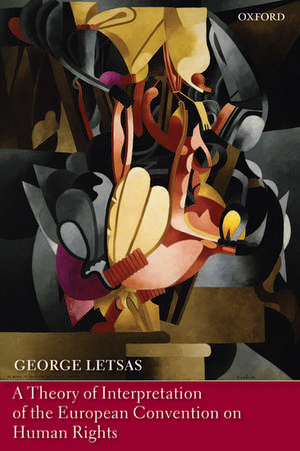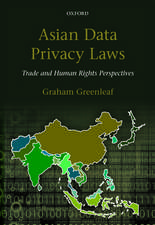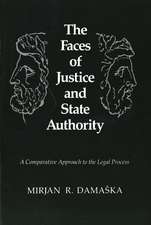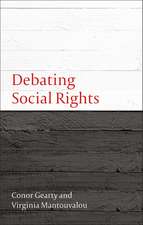A Theory of Interpretation of the European Convention on Human Rights
Autor George Letsasen Limba Engleză Paperback – 26 feb 2009
| Toate formatele și edițiile | Preț | Express |
|---|---|---|
| Paperback (1) | 344.12 lei 31-37 zile | |
| OUP OXFORD – 26 feb 2009 | 344.12 lei 31-37 zile | |
| Hardback (1) | 742.36 lei 31-37 zile | |
| OUP OXFORD – 13 dec 2007 | 742.36 lei 31-37 zile |
Preț: 344.12 lei
Nou
Puncte Express: 516
Preț estimativ în valută:
65.87€ • 71.57$ • 55.37£
65.87€ • 71.57$ • 55.37£
Carte tipărită la comandă
Livrare economică 09-15 aprilie
Preluare comenzi: 021 569.72.76
Specificații
ISBN-13: 9780199563883
ISBN-10: 0199563888
Pagini: 176
Dimensiuni: 157 x 233 x 11 mm
Greutate: 0.28 kg
Editura: OUP OXFORD
Colecția OUP Oxford
Locul publicării:Oxford, United Kingdom
ISBN-10: 0199563888
Pagini: 176
Dimensiuni: 157 x 233 x 11 mm
Greutate: 0.28 kg
Editura: OUP OXFORD
Colecția OUP Oxford
Locul publicării:Oxford, United Kingdom
Recenzii
Constituting a profound reflection on the Courts interpreting role, the book [...] both enriches legal theory and provides stimulating reading material for everyone dedicated to the cause of human rights.
Dr Letsas's book is as challenging as any theoretical writing about the European Convention on Human Rights in recent years. It starts from a very precise understanding about the nature of human rights and about the role of courts charged with the interpretation of the documents which transform the political idea of human rights into the regime of law. Not every Convention lawyer will find his positions utterly convincing but they all will benefit from absorbing and responding to the thesis he puts forward. This is an attractive and efficiently-written book which straddles the line between theory and practice with some confidence.
A powerfully argued, compelling and strikingly original contribution which deserves a central place in contemporary debates about the Convention and human rights in Europe... The author is... to be congratulated not only for producing such a ground-breaking and erudite study, but for opening up a potentially rich and fruitful research agenda to which he and others can contribute for a long time to come.
Dr Letsas's book is as challenging as any theoretical writing about the European Convention on Human Rights in recent years. It starts from a very precise understanding about the nature of human rights and about the role of courts charged with the interpretation of the documents which transform the political idea of human rights into the regime of law. Not every Convention lawyer will find his positions utterly convincing but they all will benefit from absorbing and responding to the thesis he puts forward. This is an attractive and efficiently-written book which straddles the line between theory and practice with some confidence.
A powerfully argued, compelling and strikingly original contribution which deserves a central place in contemporary debates about the Convention and human rights in Europe... The author is... to be congratulated not only for producing such a ground-breaking and erudite study, but for opening up a potentially rich and fruitful research agenda to which he and others can contribute for a long time to come.
Notă biografică
George Letsas is Lecturer in Law at University College London















